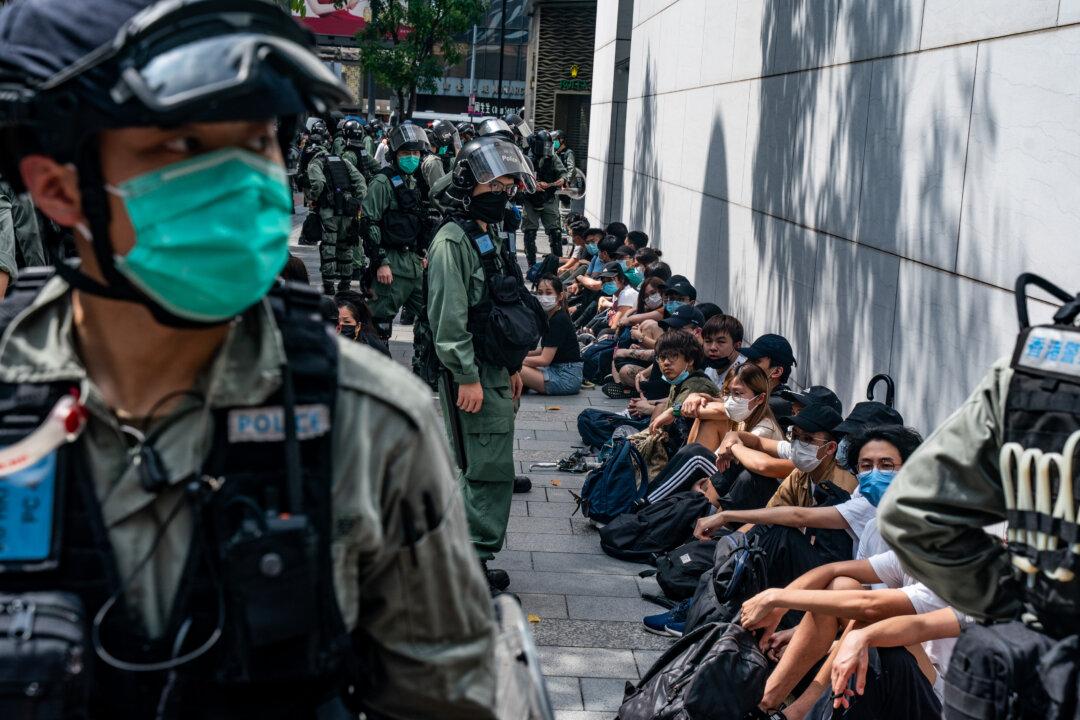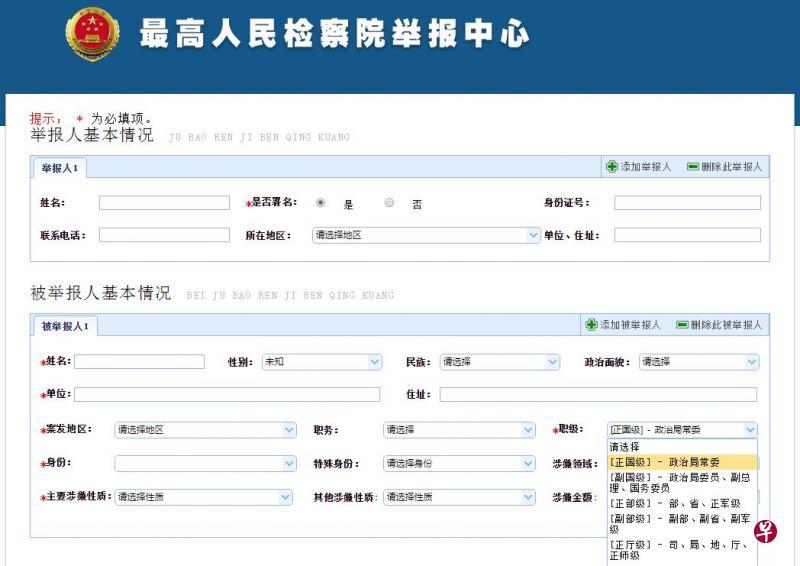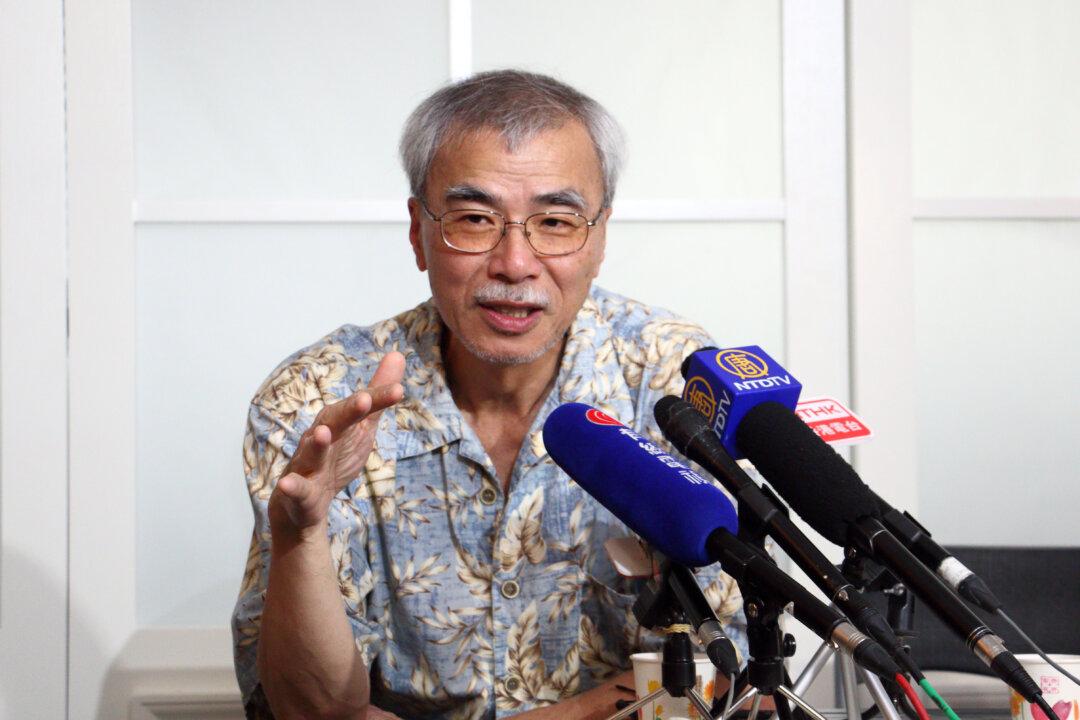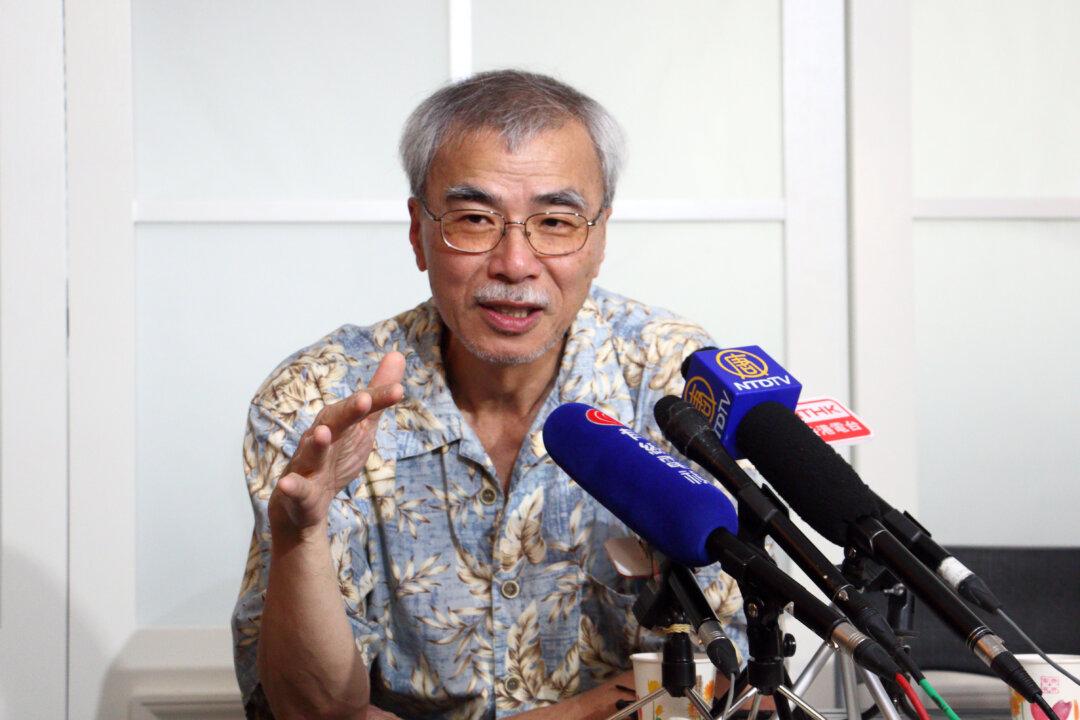After decades of being restrained by drastically repressive birth control measures, many wealthy young mothers-to-be in China are now electing to give birth abroad, to ensure a different kind of a future for themselves and their children.
An architect for a renowned architectural firm, Ms. Deng earns a monthly income of tens of thousands of yuan (ten thousand yuan being equivalent to US$1,478.) Her husband is a small business owner and they have a five-year old daughter. Ms. Deng told The Epoch Times, “So many couples in Beijing have had their second child—most wealthy people in Beijing nowadays opt for a second child. All my friends have two children; they feel that the second child will be a companion for the first child, and an heir to the family’s wealth.”
Five years ago, upon the advice of her doctor, she underwent a postpartum tubal ligation. At the time, she didn’t realize that the one-child policy that she had grown up with was no longer so strictly adhered to by people in China.
These days, Chinese are finding all sorts of ways to have more children, going about it more openly: her past decision is now the source of derision in certain circles. Though mandatory restriction on births is still a national policy in China, it is now only able to restrain the poor, such as farmers, and public service workers, and those otherwise unpopular with authorities.
“In Beijing nowadays, no one can keep you from having children,” said Ms. Deng. “As long as you give birth at a private hospital, your child will be issued a birth certificate.” Notwithstanding, many wealthy women in Beijing choose to give birth in Hong Kong or overseas. She said that for the upper class, spending 100,000 to 200,000 yuan (US$14,775 to US$29,951) is nothing. “It’s like buying insurance to them,” she said. “I’m not exaggerating at all. Many developers are immigrating and raising their families overseas, to escape the insecurity of doing business in China.”
Giving birth in Hong Kong has gained increasing popularity in the past few years: the Internet is rife with ads for Hong Kong birthing services.
Ms. Wu, a mother from Shanghai, was interviewed at a hospital in Kowloon, Hong Kong by New Epoch Weekly. Through the assistance of a “birth broker,” she and her husband had been led to a hospital, assisted in enlisting a doctor, reserving a hospital room, rented an apartment in Hong Kong, and procured a visa, and birth certificate. Wu said that though her life in China is fine, she wants her daughter to obtain a resident certificate and be educated in Hong Kong.
At an expensive international school in Kowloon Tong, Hong Kong, there are many Chinese children with Hong Kong resident identities. A wealthy man from the northeast’s Heilongjiang Province came especially to Hong Kong to enroll his daughter in school. He said that his daughter was born in Hong Kong and that he intends to raise her there. “Education in Hong Kong is much better than the spoon-fed type of education in China,” he said. “Hong Kong schools have international recognition.”
Statistics from the Hong Kong Statistics Department reported that the 40,000-50,000 deliveries in Hong Kong in 2009 were through mainland Chinese mothers, contributing to approximately one-half of the 81,000 births.
Dozens of birth and nursing centers have been established in Chinese communities in Los Angeles, California. They specifically provide services for expectant mothers from China.
However ideal, obtaining a U.S. visa in China is difficult, for all except a minority of elites. “Compared to the United States, Hong Kong is still my number one choice for giving birth,” says Ms. Chen from Sichuan, who plans to have a second child. “Most people in China can go to Hong Kong, while not everyone can go to the United States.”
However, for some people who seek in particular to break away from Chinese communist rule, giving birth in the United States has its perks. “Though Hong Kong is under the one country, two systems policy, the Chinese Communist Party has continued to exert its control. Therefore, giving birth in the United States and obtaining a U.S. passport would provide the utmost security,” Chen pointed out.
The majority of Chinese parents who decide to have their children in the United States agree that spending over $20,000 and three to four months in the United States, in exchange for an American citizenship, is the best investment for their children’s future.
“There is a well-developed social security system, and through struggles, the chance to see hope. Everyone has an ‘American dream,’” remarked one Chinese blogger.
The “American dream” represents freedom, equality, and hope for Chinese immigrants. Many Chinese bloggers who might not be able to come to the United States are also hoping to achieve a similar future in China. Another Chinese blogger wrote, “I can’t afford to immigrate, but I hope that in the future, as society progresses, my children can receive benefits.”
Read the original Chinese article, first published in the New Epoch Weekly magazine.
Two Child Families
An architect for a renowned architectural firm, Ms. Deng earns a monthly income of tens of thousands of yuan (ten thousand yuan being equivalent to US$1,478.) Her husband is a small business owner and they have a five-year old daughter. Ms. Deng told The Epoch Times, “So many couples in Beijing have had their second child—most wealthy people in Beijing nowadays opt for a second child. All my friends have two children; they feel that the second child will be a companion for the first child, and an heir to the family’s wealth.”
Five years ago, upon the advice of her doctor, she underwent a postpartum tubal ligation. At the time, she didn’t realize that the one-child policy that she had grown up with was no longer so strictly adhered to by people in China.
These days, Chinese are finding all sorts of ways to have more children, going about it more openly: her past decision is now the source of derision in certain circles. Though mandatory restriction on births is still a national policy in China, it is now only able to restrain the poor, such as farmers, and public service workers, and those otherwise unpopular with authorities.
“In Beijing nowadays, no one can keep you from having children,” said Ms. Deng. “As long as you give birth at a private hospital, your child will be issued a birth certificate.” Notwithstanding, many wealthy women in Beijing choose to give birth in Hong Kong or overseas. She said that for the upper class, spending 100,000 to 200,000 yuan (US$14,775 to US$29,951) is nothing. “It’s like buying insurance to them,” she said. “I’m not exaggerating at all. Many developers are immigrating and raising their families overseas, to escape the insecurity of doing business in China.”
Hong Kong Education Preferred
Giving birth in Hong Kong has gained increasing popularity in the past few years: the Internet is rife with ads for Hong Kong birthing services.
Ms. Wu, a mother from Shanghai, was interviewed at a hospital in Kowloon, Hong Kong by New Epoch Weekly. Through the assistance of a “birth broker,” she and her husband had been led to a hospital, assisted in enlisting a doctor, reserving a hospital room, rented an apartment in Hong Kong, and procured a visa, and birth certificate. Wu said that though her life in China is fine, she wants her daughter to obtain a resident certificate and be educated in Hong Kong.
At an expensive international school in Kowloon Tong, Hong Kong, there are many Chinese children with Hong Kong resident identities. A wealthy man from the northeast’s Heilongjiang Province came especially to Hong Kong to enroll his daughter in school. He said that his daughter was born in Hong Kong and that he intends to raise her there. “Education in Hong Kong is much better than the spoon-fed type of education in China,” he said. “Hong Kong schools have international recognition.”
Statistics from the Hong Kong Statistics Department reported that the 40,000-50,000 deliveries in Hong Kong in 2009 were through mainland Chinese mothers, contributing to approximately one-half of the 81,000 births.
New Fad: American Births
Dozens of birth and nursing centers have been established in Chinese communities in Los Angeles, California. They specifically provide services for expectant mothers from China.
However ideal, obtaining a U.S. visa in China is difficult, for all except a minority of elites. “Compared to the United States, Hong Kong is still my number one choice for giving birth,” says Ms. Chen from Sichuan, who plans to have a second child. “Most people in China can go to Hong Kong, while not everyone can go to the United States.”
However, for some people who seek in particular to break away from Chinese communist rule, giving birth in the United States has its perks. “Though Hong Kong is under the one country, two systems policy, the Chinese Communist Party has continued to exert its control. Therefore, giving birth in the United States and obtaining a U.S. passport would provide the utmost security,” Chen pointed out.
The majority of Chinese parents who decide to have their children in the United States agree that spending over $20,000 and three to four months in the United States, in exchange for an American citizenship, is the best investment for their children’s future.
“There is a well-developed social security system, and through struggles, the chance to see hope. Everyone has an ‘American dream,’” remarked one Chinese blogger.
The “American dream” represents freedom, equality, and hope for Chinese immigrants. Many Chinese bloggers who might not be able to come to the United States are also hoping to achieve a similar future in China. Another Chinese blogger wrote, “I can’t afford to immigrate, but I hope that in the future, as society progresses, my children can receive benefits.”
Read the original Chinese article, first published in the New Epoch Weekly magazine.



